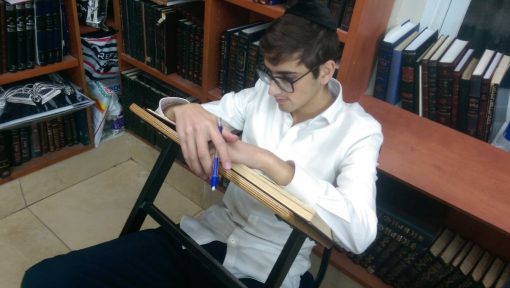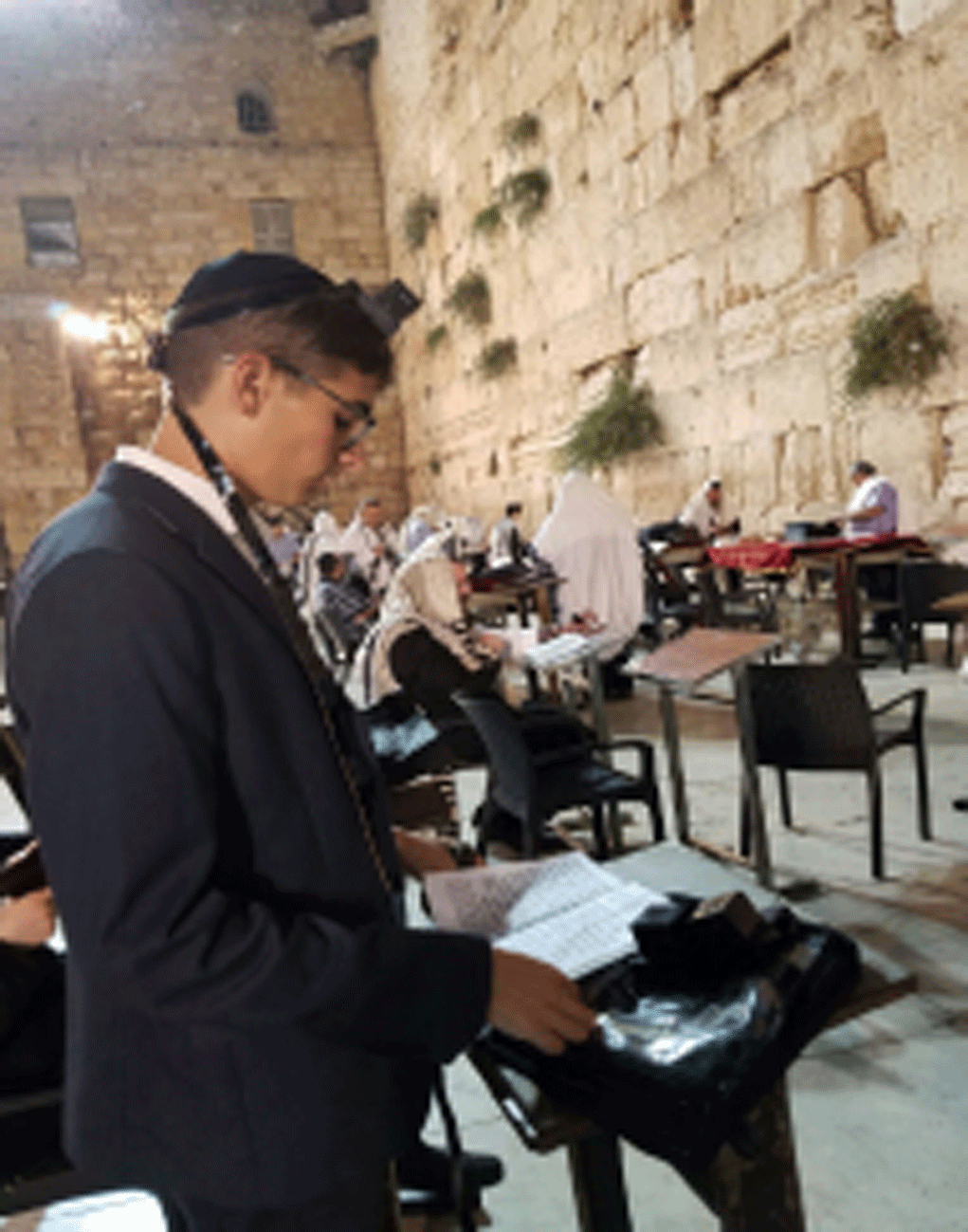Rav Moshe Feinstein zt”l passed away on Taanis Esther, 5746. That Purim, the bochurim in Yeshivas Telshe still reveled in the Purim atmosphere, not even allowing one of their roshei yeshiva to address them above the din. At that point, Rav Dovid Barkin, a rebbi in the yeshiva, took hold of the microphone and thundered, “Rabbosai, Rav Moshe, the gadol hador, was just niftar. If it weren’t Purim today, it would be assur to smile!”
This Purim, many in Klal Yisroel must have felt the same way. With the tragic petirah of Mordechai (Mordy) Turner, Purim switched m’Yom Tov le’eivel, from a holiday into a time of mourning, as those close to Mordy — his rabbeim, his friends from Telshe, Mayan Hatorah, and Tiferes Yisroel, and the entire Cleveland community — struggled to find simcha on the happiest day of the year. And for the first half of the day, instead of bringing mishloach manos, a shattered community brought a beloved bochur to his final resting place.
Oy! Vayizak ze’akah gedolah umarah!
Yes, for the countless who davened fervently for Refoel Mordechai ben Shulamis Devorah for the past two years, his name is now glaringly absent from the mi shebeirach list for cholim, and we emit a loud and bitter cry.
Yet, somehow, whenever we think of Mordy, a smile inevitably appears. With his trademark chein, Mordy captured our hearts and wouldn’t let go. A role model for so many, his easygoing nature put others at ease and made them feel good about themselves.
Velanovim yitein chein.
Mordy never demanded more or complained about his situation. His unpretentiousness polished his bacheinte nature and manifested itself in so many ways. His friends, who witnessed his acceptance of ratzon Hashem and His decree marveled at his humility and his strength. And through his gevurah, they garnered the inspiration to work through their own problems and humbly accept their lot in life.
Mordy never imposed his will on others, instead putting their needs first. Helping with their problems. Listening to their worries. Constantly infusing them with chizuk.
Rav Avrohom Mordechai Newman, Mordy’s rosh yeshiva at Bais Medrash Mayan Hatorah, served as a beacon of light to the family throughout the ordeal. One year after Mordy was diagnosed, Rav Newman asked Mordy to speak to his friends at the yeshiva. That message continues to ring and resound in their hearts. “I would like to thank Hashem for all I am going through, because it has given me the opportunity to become so close to Him and for me to see His Hand so clearly in day-to-day life.” 
When his friend, Nochum Schoenfeld, was niftar, Mordy accepted upon himself to learn a Mishnah a day in his memory. And he took it seriously, arranging a chavrusashaft with his rebbi, Rav Yehoshua Klaver. Through the many challenging times, he was careful to adhere to his commitment. Mordy, a most loyal friend, couldn’t bear to let his friend down. It was this loyalty that brought so many friends to the hospital, in Cornell Medical Center and the Cleveland Clinic. Although they came to encourage him, it was he who invigorated others.
Even as his condition worsened, “UMordechai lo yichra velo yishtachaveh.” He would not give up. The constant treatments and pricking would have defeated most, but not Mordy. His faith seemed to grow as his body weakened. Embracing his nisayon, he never allowed his smile to waver.
And it’s no wonder.
Mordy was blessed with incredibly loving parents, who did everything humanly possible to help him receive the very best medical attention, while infusing him with an unshakeable and unbreakable simchas hachaim. Reb Tzvi, his father, a renowned baal simcha whose jovial nature simply creates smiles, imbued that positivity within Mordy. To avoid causing his parents agmas nefesh, Mordy tried his best not to express his pain, not only verbally but even with facial expressions.
As for his parents, their optimism never waned. The night before his son was niftar, as Mordy’s condition deteriorated and the prospect for a refuah sheleimah dwindled, Reb Tzvi spoke about Mordechai, the hero of the Megillah, who overcame insurmountable odds and brought about a yeshuah. Reb Tzvi was still hopeful it could happen again. When a kind nurse identified herself as Esther, he could not help but explain to her how Esther Hamalkah was the heroine of the Purim story, how the stage was set for another Purim miracle.
But it was not meant to be.
Nitzchu areilim as hametzukim.
Perhaps, at this point, we would say that the battle is lost.
But it isn’t.
The Gemara (Chullin 139b) asks: Where do we find a hint to Mordechai HaYehudi in the Torah? It answers: One of the spices in the ketores is called mor deror, and the Targum translates this phrase as meira dachya, which sounds like Mordechai.
How are we to understand this? What is the deeper meaning of this very cryptic hint?
The answer may be that mor means bitter, while deror connotes a freedom of sorts. At times, we encounter bitter situations, such as the plight of the Jewish people in the story of Purim. There seems to be no hope; the odds are stacked against us. Oy, is it bitter! But when we hold onto our faith, we discover a deror, a miraculous freedom, a liberation we never thought possible. This is the deeper meaning of Mordechai’s name.
No, the battle is not lost at all.
Mordy’s deror has arrived, his mission accomplished.
Though his neshomah ascended to its rightful place alongside other anovim, his chein and smile remain seared into the hearts of those who knew him and loved him. And his unbending emunah continues to strengthen his friends in their challenges and inspires them to reach ever greater heights.
Mordy, it is time to bid you farewell, but you educated us well. You taught us about faith and humility, happiness and acceptance. Like the spices of the ketores, your rei’ach nichoach brought pleasure and joy to so many.
And we will not forget you.








